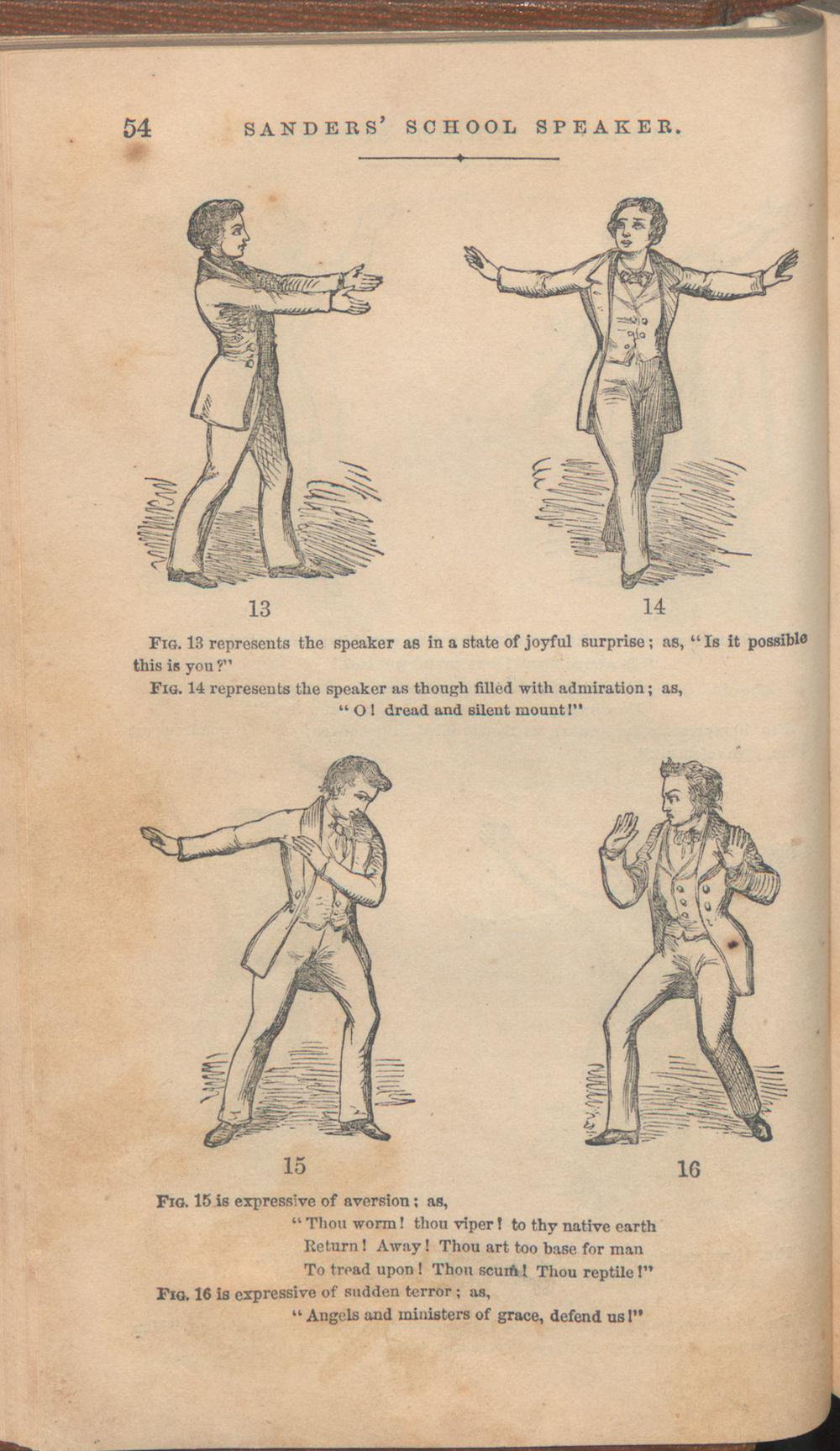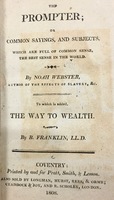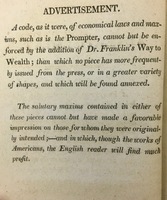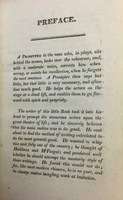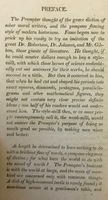What is The Prompter?
What is The Prompter?
The Prompter; or Common Sayings, and Subjects, Which are Full of Common Sense, the Best Sense in the World is an elocution guide written by Noah Webster. The book uses a collection of sayings, phrases, and proverbs to offer readers common sense advice. The Prompter was originally published in 1793 in the Unites States (Webster 1793). The version featured in this exhibit, however, is an 1808 London republication, which also includes Benjamin Franklin’s The Way to Wealth. The Prompter’s author, Noah Webster, has been described by scholars as “the most influential and prominent American philologist of his era” (Bonfiglio 2002:38).
According to the Preface, The Prompter’spurpose was “doing as much good as possible by making men wiser and better” (Webster 1808:Pref2). Webster hoped to “whip vice and folly out of the country” and “do the most general good” by “prompt(ing) numerous actors upon the great theater of life” (Webster 1808:Pref1). As a prominent American figure, Noah Webster considered it his duty to expand and improve the knowledge of Americans, and later Englishmen. He did so by collecting and expounding upon a series of what he considered to be the most sensible common sense sayings “in the world” (Webster 1808). One such phrase is "The Under-Lip," a pre-existing phrase to which Webster attempts to give a definition and explanation. Throughout “The Under-Lip,” Webster writes about the incompetence of those with under-lips, warning readers against hiring or electing anyone with an under-lip. In doing so, Webster constructs a difference within the working class between fit and unfit laborers. He simultaneously rearticulates the class difference between working class laborers and his own readers, who he assumes are within a high enough class to hire laborers. By rearticulating differences within and between classes, Webster exemplifies Thomas Bonfiglio's theory that language rearticulates difference. Yet, he takes it a step further, showing how labels and descriptions, not merely locution, can act as linguistic methods for emphasizing difference.
